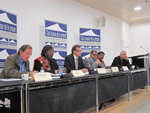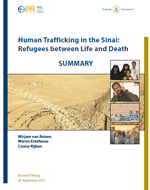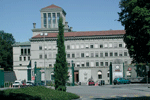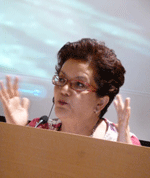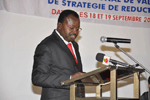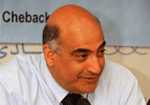Social Watch news
Published on Fri, 2012-10-12 13:17
The fifth annual global report Right to Food and Nutrition Watch 2012 focuses on the role of democracy in the fight against hunger. Representatives of the civil society organizations that produced the study called in the launch ceremony in Geneva for a turnaround in global decision-making on the matter, because they concluded that it is impossible to combat the causes of hunger while keeping existing power relations untouched. |
Published on Wed, 2012-10-10 07:19
Eurodad, Afrodad, Latindadd, Jubilee USA and the Third World Network (TWN) joined hands to call in a joint statement for a lasting solution to the sovereign debt crisis and the establishment of a fair and independent international debt workout mechanism. |
Published on Tue, 2012-10-09 07:34
The Jordanian Women’s Union (JWU, national focal point of Social Watch) vowed to continue offering services to abused women at its shelter in Amman despite a recent decision by the Ministry of Social Development to close it down, reported journalist Rana Husseini in an article published in The Jordan Times. |
Published on Tue, 2012-10-09 07:23
The UN Human Rights Council adopted last week a set of guiding principles relating to extreme poverty. The decision means that the member states of the Council affirmed that eradicating extreme poverty is not only a moral duty but also a legal obligation under existing international human rights law. |
Published on Fri, 2012-10-05 12:19
A group of United Nations independent experts on extreme poverty, external debt and equitable order reminded European Union governments that economic reforms must be crafted in line with the human rights obligations of States, following the release of a European-wide flagship study on the structure of the EU banking sector. |
Published on Tue, 2012-10-02 15:46
The UN Refugee Agency (UNHCR) must organize the protection of the refugees it takes responsibility for in the Sinai, so that they are secure in the camps and do not risk kidnapping, according to a new report authored by Mirjam van Reisen, Meron Estefanos and Dr Conny Rijken, from Tilburg University and European External Policy Advisors (EEPA)t. An article about the report, written by Van Reisen and published by InDepth NewsViewpoint (IDN), says that the victims of kidnapping endure unspeakable torture, and increasingly women and children are included, tortured and raped. |
Published on Fri, 2012-09-28 10:55
A statement signed by 112 major civil society organizations, which represent hundreds of millions of people in more than 160 countries, supports an Ecuador’s proposal for a special World Trade Organization (WTO) session to review the current scholarship and opinion at the international level on the compatibility of its rules with robust financial regulations. The initiative will be discussed at the WTO’s Committee on Trade in Financial Services on Oct. 1. |
Published on Fri, 2012-09-28 10:53
Tunisian civil society is rallying in support of a 27 years-old woman who accused two policemen of raping her on September 3. The woman and her fiancé were summoned by a judge on Wednesday to face charges of “indecency” brought by those officers. Leading non governmental organizations, including the Tunisian Association of Democratic Women (ATFD) and the Tunisian League of Human Rights (LTDH), have formed a committee to co-ordinate a campaign to defend the couple. |
Published on Thu, 2012-09-27 13:18
Since the first decade of the 21 century, the World Bank and the IMF have promoted the Poverty Reduction Strategy Papers (PRSP) as a brand new methodology, better than their controversial structural adjustment plans. But, in spite the change of names, the Bretton Woods institutions still consider economic growth as an unavoidable step in the fight against poverty, with little mention to the distribution of wealth. Togo is an example. Samir Abi, president of non governmental organization Visions Solidaires, analyzed the recently finished second Togolese PRSP validation process. |
Published on Tue, 2012-09-25 11:02
Arab civil society organizations warned that the European Union (EU) “more for more” approach and the economic model it promotes is inconsistent with the national paths towards democracy and social and economic policies that the region proposes. |
SUSCRIBE TO OUR NEWSLETTER

